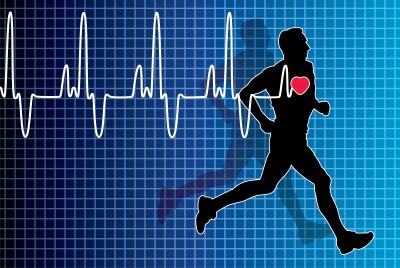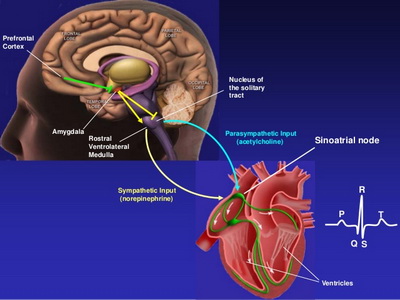How does the heart change its rate?
1 Answer
The central nervous system releases hormones that tell the heart to speed up or slow down.
Explanation:
During exercise, your heart needs to increase the rate of blood flow to deliver glucose and oxygen to your muscles and then carry away the waste products.

When you are resting and no longer need a high blood flow, the heart rate decreases.
How it works
The ventrolateral medulla (VLM) is the cardiovascular control centre for the body.

(from www.slideshare.net)
Specialized neurons called baroreceptors (baro- = "pressure") in the blood vessels monitor changes in blood pressure and relay them to the VLM.
It transmits these messages to the heart through the sympathetic and parasympathetic nervous systems.
During exercise, the VLM sends messages through the sympathetic nervous system, leading to the release of the hormones epinephrine and norepinephrine. These hormones increase the heart rate.
When the exercise is over, the parasympathetic nervous system releases acetylcholine, which decreases heart rate.
The parasympathetic nervous system governs "at rest" behavior, whereas the sympathetic nervous system is your body's "fight or flight" response.
The two systems act as checks and balances to each other.
They work together to ensure the appropriate heart rate for a given activity level.

